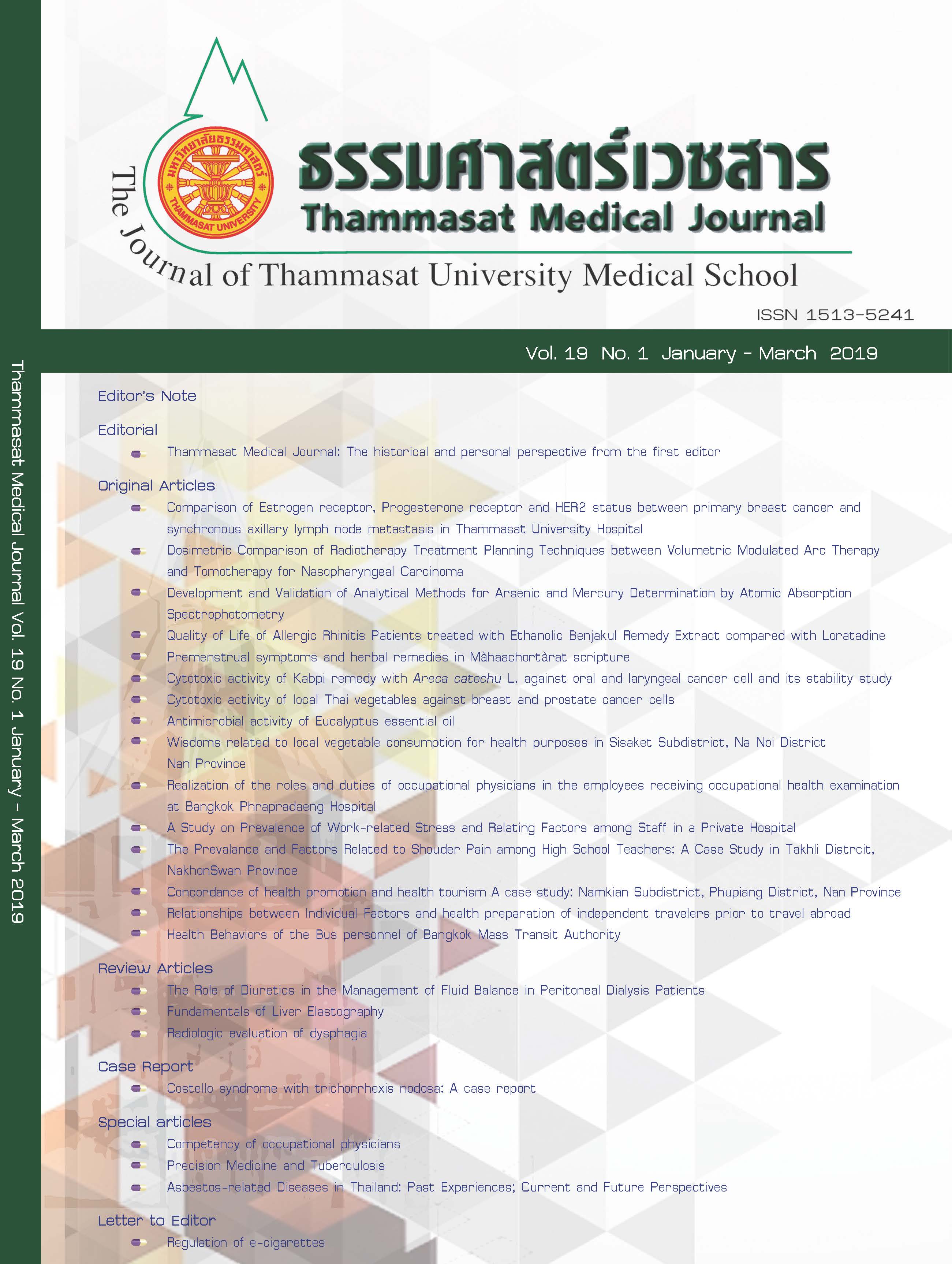Cytotoxic activity of Kabpi remedy with Areca catechu L. against oral and laryngeal cancer cell and its stability study
Keywords:
Stability, Kabpi remedy, Oral cancer, Laryngeal cancer, Cytotoxic activityAbstract
Introduction: Thai Traditional remedy called Kabpi (KP) was described in Mukalok scripture and it has long been used for treatment of swelling of throat and oral cancer. It is composed of Achasma sphaerocephalum Holtt., Limonia acidissima L., Nigella sativa L., Syzygium aromaticum (L.) Merr. et Perry. It is grinded into powder and eat with Areca catechu L. (AC). There is no report about cytotoxicity. Therefore, the purposes of this study are to investigate cytotoxic activity against oral cancer (KB) and laryngeal cancer (HEp-2) cell lines to scientific information for properties
support and its stability study.
Method: KP remedy added AC was macerated with 50% ethanol. This method imitated from Thai folk medicines using by soaking in alcohol. The extract was tested for cytotoxic activity against KB
and HEp-2. Stability of the extract was investigated by storage under accelerated conditions at temperature 40 ± 2 °C and 75 ± 5 % relative humidity (RH) for 6 months and tested for cytotoxic
activity by using Sulphorhodamine B (SRB) assay.
Result: The results of this study, the ethanolic extract of KP remedy added AC showed good cytotoxic activity against KB and showed moderate cytotoxic activity against HEp-2 cell lines with IC50
values of 28.85 ± 0.69 and 34.15 ± 1.45 μg/ml, respectively. For 6 months stability test, the cytotoxic activity against KB and HEp-2 showed significant differences at various time comparison
with day 0 (p value < 0.05) since 30 days.
Conclusion: The 50% ethanolic extract of KP remedy added AC showed good cytotoxic activity against KB and showed moderate cytotoxic activity against HEp-2 cell lines, IC50 value reference from National Cancer Institute (NCI), USA and was stable with on 2 months at room temperature after that the activity of extract decreased significantly with day 0.



